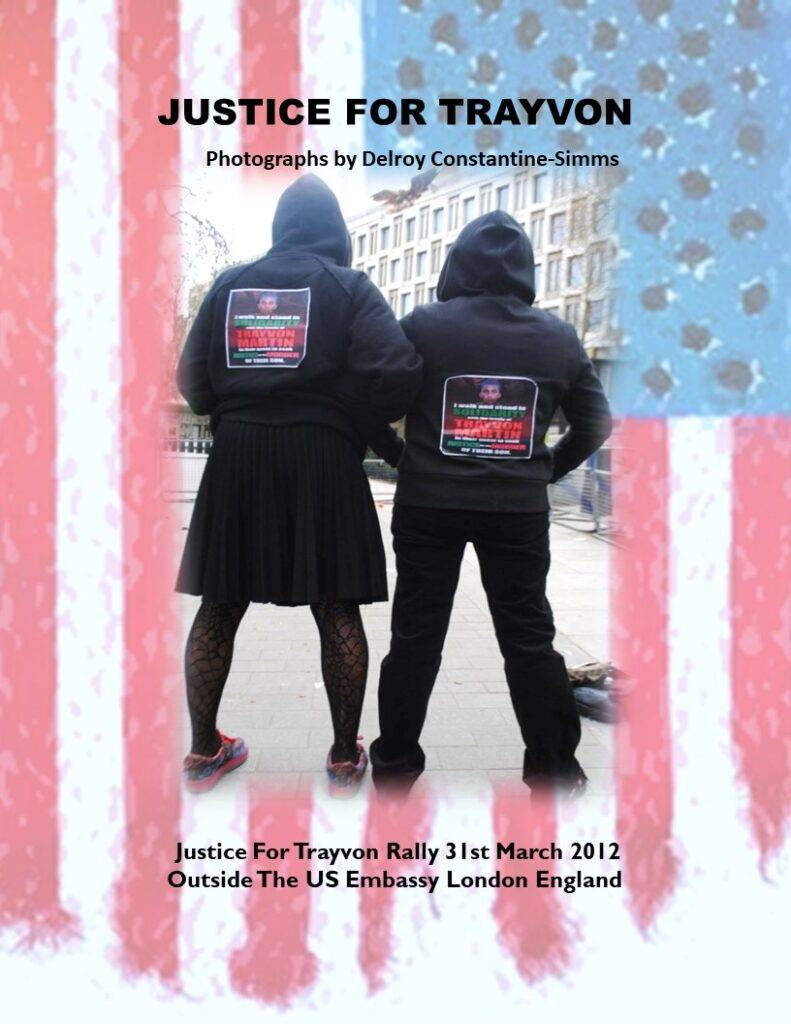This photo documentary book is a first-hand pictorial account of my presence and participation at the Trayvon Martin protest which took place outside the American Embassy in London March 31st 2012.
The production of this historical photo document is about ensuring that the UK support for Trayvon Martin is recorded and archived in accessible libraries as opposed to only commercial or private archives.
The book is broken int three sections:
1. Section One: Perspectives On The Death Trayvon Martin And Racism5 Academic Essays
2. Section Two Visual Activism And Iconic Protest Images 250 Photos
3. Section Three Race And Policing In The UK 5 Academic Essays This publication consists of images taken with a basic digital camera cell phone.
The images are not watermarked, neither do they come with captions. While I was reluctant to exclude images-based on quality alone, I adopted the view that images which express a wide range of emotions regardless of quality or imperfections, to the consternation of many a purist photographer and editor. This photobook focuses on how interpreting black protestors’ political dress practices can change the experience of viewing and ultimately understanding the black body’s role in civil in anti-racism protests.
The role of feeling within photographic theory and practice is fundamental with regards to the experience of viewing photographs of suffering because it calls on the viewer to assume the role of a secondary witness, or rather a witness who was not present at the moment of incident develops an emotional identification. The visual experience is never purely visual, but rather engages with other senses that enhance how we see. To discuss feeling in relation to the photographic image is to discuss both the tactile, or the textural, and the emotional. In addressing the symbolic value of dress in relation to the black-body-as-protest-body the viewer gets closer to touching or rediscovering a new narrative of the photograph through the poetics of dress vis-à-vis its aestheticization.
The book highlights how the aesthetics of resistance are the wearable political signs, badges, worn in almost every public demonstration, act as a visual and material way of asserting collective beliefs through individual bodies and voices. In the case of the Trayvon Martin protests, the political dress is symbolized by participants wearing hoodies, while carry the now infamous skittles, and ice tea complimented with cries of “No Justice No Peace. Protest.”



